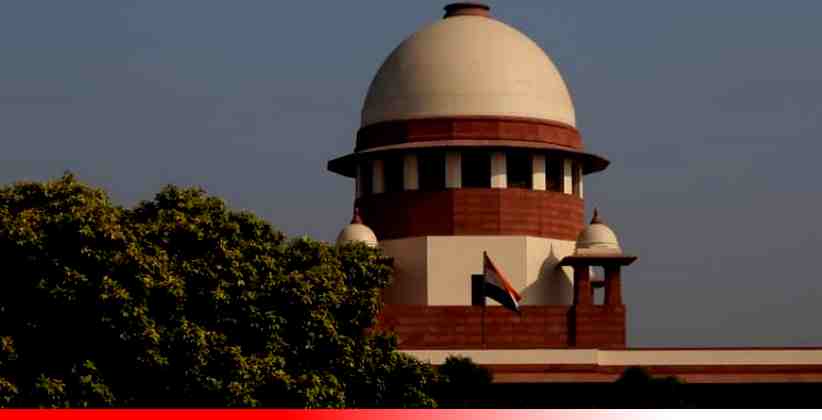Advocate Ashwani Kumar Upadhyay has filed a PIL in the Supreme Court seeking direction to the Centre to ascertain the feasibility of confiscation benami properties disproportionate assets and black money. It also seeks awarding of life imprisonment in offences related to bribery, black money, benami property, disproportionate asset, tax evasion and money laundering.
In the plea, it is mentioned that cause of action arises on January, 2020 when corruption watchdog Transparency International put India at rank 80 in the Corruption Perception Index.
The plea also stated that " Due to weak and ineffective anti-corruption laws, India has never been ranked even among top 50 in Corruption Perception Index but Centre has not returned them to weed-out the menace of corruption, which brazenly offends rule of law as well as the right to liberty, life, dignity guaranteed under Article 14 and 21."
It further mentioned that, Right to Live Happily and with dignity is guaranteed under Article 21 of the Constitution of India but due to massive corruption, our ranking in Happiness index is very low. Putting forth a solution to this problem The plea added that as the total budget of Centre, State and local bodies is around 70lakh Crores, "due to massive corruption in every department, around 10% of the budget becomes black money."
It is mentioned that Centre can save this huge public money by confiscating 100% black money, linking assets above Rs. 50,000 with AADHAR, disproportionate assets and awarding life imprisonment to looters.
The petitioner also highlighted that due to weak and ineffective anti-corruption laws, not a single district is free from land mafias , betting mafia, tender mafias, hawala mafias , medicine-hospital mafias , betting mafias , tender mafias, school & coaching mafias , conversion mafias , white-collar political mafias , who divide our society and country on the basis of religion, race ,caste, sex and place of birth.
In this background, Ashwani Kumar Upadhyay contended that the injury caused to people is extremely large because corruption is insidious plague, having wide range of corrosive effects on society. Ashwani Kumar Upadhyay alternatively sought directions to the Law Commission of India and /or Lokpal to examine and publish the best anti-corruption laws of the world.
The primary anti-corruption legislation in India is the Prevention of Corruption Act, 1988 which criminalizes taking and giving of undue advantage to public servants. Both individuals and companies are liable to be punished for an offence under Prevention of Corruption Act,1988. This Act specifically deal with the Public Servants. The Prevention of Money Laundering Act , 2002 is the second act which deals with an offence of money laundering that has been committed if a person is party to any process connected with the proceeds of crime and project such proceed and untained property . "Proceeds of Crime" means any property obtained by a person as a result of criminal activity related to certain offences listed in the schedule to the Act. The third legislation is Benami Transaction (Prohibition) Act, 1988, this prohibit any benami transaction except when a person purchase property in his wife or unmarried daughter's name.
But these laws failed to prevent corruption, black money and bribery therefore; there is need of strong anti-corruption laws to combat with the problem of tax evasion, bribery, benami property, black money, human drug trafficking, forensic fraud, black marketing etc.






